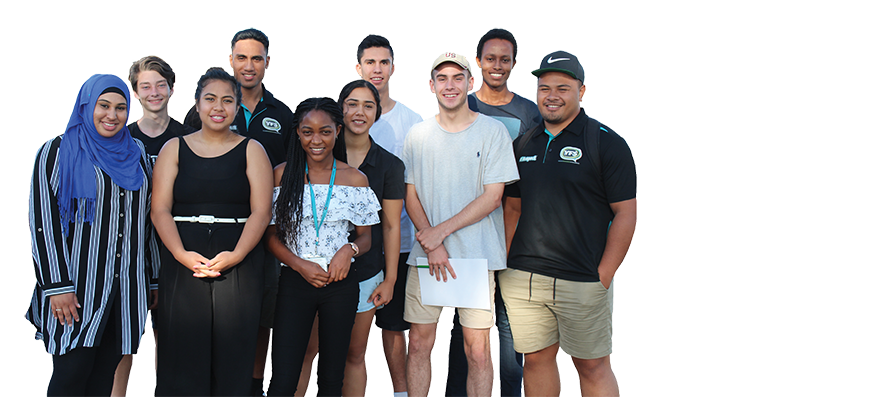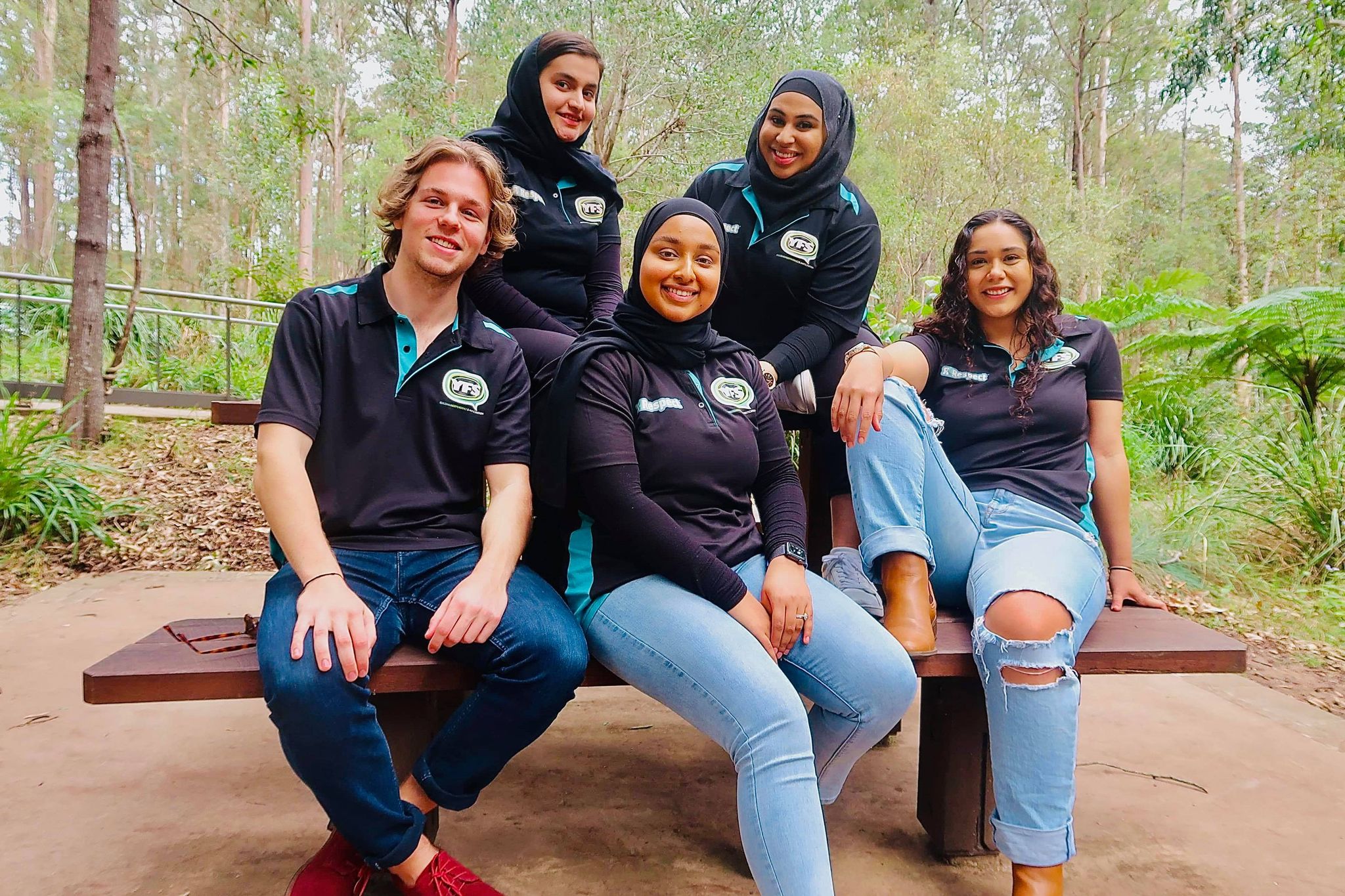R4Respect
Our R4Respect team of young people support their peers to learn how to draw the line on what is harmful and what is ok in respectful relationships.

What is R4Respect?
R4Respect is a team of young people aged 17 to 24 years. Our aim is to prevent anti-social behaviour and violence, including violence in personal or intimate relationships.
Through educational sessions in schools and other groups, on-line messaging and community events, we are on a mission to show what ‘crosses the line’ into harm – a line that has serious moral and legal consequences. We support young people to develop their understanding of healthy relationship behaviours and give them tools to call out harmful behaviours.
We use a unique peer-to-peer model that empowers us as leaders and agents of change. Since 2017, the team has reached more than 500,000 young people online and more than 6,000 face-to-face with positive messages of respect.
We’re a diverse group that reflects the communities in which we operate. Ninety-two per cent of R4Respect participants agreed or strongly agreed that it is helpful to have young people leading the learning on respectful relationships.
Does R4Respect work?
Our work is informed by research into what works and has achieved national acclaim taking out the Gold Award in the community-led category of the 2019 Australian and Crime Prevention Awards, run by the Australian Institute of Criminology.
In 2019, the Australian National Research Organisation for Women’s Safety (ANROWS) commissioned an evaluation of R4Respect’s peer-to-peer work.
Key outcomes
86% of participants agreed with the statement, “Things I learnt in the program would help me act with greater respect in the future.”
There was a 12% increase in young people indicating strong agreement with the statement, “I know that there is a clear line between what is OK behaviour and what is harmful behaviour.”
R4Respect showed potential to positively influence young people’s behaviour, including how they manage conflict.
However, ANROWS found that young men’s attitudes towards gender equality remained difficult to shift. That’s why we started our companion program Men4Respect.
"It is obvious that they [peer educators] want to be there, they show enthusiasm and energy."
R4Respect participant

